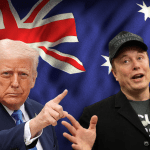The world’s biggest technology companies could face billions of dollars in fines for breaches of new European Union (EU) legislation after lawmakers reached an agreement on its scope on April 23.
The landmark Digital Services Act (DSA) is the EU’s answer to what it sees as a failure by tech giants to combat illegal content on their platforms. Non-compliance could cost companies as much as 6% of their global annual sales when the rules go into effect as early as 2024.
Failures could be extremely costly. Based on their reported 2021 annual sales, Amazon, for instance, could face a theoretical fine of as much as €26 billion (US$28 billion or about RM121.81 billion) for future non-compliance with the DSA. Repeat offenders could be barred from operating in the EU.
Facebook whistle-blower Frances Haugen said the DSA could represent a “global gold standard” for regulating social media companies. After more than a year of internal wrangling, key rules will include:
- A ban on using sensitive data such as race or religion for targeting ads
- A ban on targeting any ads to minors
- A ban on so-called “dark patterns”, specifically tactics to push people into consenting to online tracking
All websites will be accountable to the DSA, but platforms with more than 45 million users will have to abide by stricter rules such as paying Brussels a supervisory fee of as much as 0.1% of their global annual revenue to enforce the law, and providing regulators with annual reports about illegal and harmful content on their sites.
“With the DSA, we help create a safe and accountable online environment,” Margrethe Vestager, the EU’s competition chief, said in a statement on Saturday. “With today’s agreement, we ensure that platforms are held accountable for the risks their services can pose to society and citizens.”
The deal still needs to be signed off by parliamentarians and the 27 EU countries before being made official later this year. Large companies will then have four months to comply with the rules, and all other companies will have 15 months. Smaller companies can apply to be exempt from certain rules.
Google said it welcomed the DSA’s goals and looked forward “to working with policymakers to get the remaining technical details right to ensure the law works for everyone”.
The DSA is the second major piece of legislation in Brussels’ digital rulebook to be cemented in a month. On March 24, the EU finalised its Digital Markets Act, a related framework that requires “gatekeepers” to adhere to strict antitrust rules.
Both laws were designed to address market dominance and Internet safety. But while the previously-announced DMA targets about a dozen major, mostly US-based tech companies, the DSA sets basic standards for all websites.
Large companies — including the likes of TikTok and Pornhub — will face additional obligations including opening their algorithms to enforcers and designated researchers. Social media companies and search engines will also have to offer a product not based on profiling, while e-commerce sites will have to conduct random checks of products sold on their sites.
They’ll also have to explain to Brussels what they are doing to combat harmful content such as propaganda or misinformation during emergencies, often seen during the Covid-19 pandemic and Russia’s war in Ukraine.
The EU could issue fines or require changes made to policies if companies can’t show they’re doing enough to combat harmful content.
The new fines are in addition to penalties applicable under the DMA. Under that law, the world’s biggest tech companies face fines of as much as 10% of their global annual sales for an initial breach, rising to 20% for repeat infringements. Those routinely violating the rules could be temporarily banned from conducting mergers and acquisitions.
Still, it’s highly unlikely the EU would issue such massive fines. It’s never applied the maximum penalties possible under its General Data Protection Regulation laws, for example. Those rules have been in force since 2018 and allow for fines of as much as €20 billion or 4% of a company’s global sales. The largest issued to date was a €746 million penalty handed to Amazon in July, which the company is appealing.
Amazon and Google have long been targets of antitrust investigations from Brussels, but these cases drag out for years in courts and have had little impact on behaviour. Officials say they need tools like the DSA and DMA to break what the EU states is a stranglehold on digital ecosystems and platforms by a handful of giants.
But questions remain over how Brussels will enforce the two new laws, as both combined require over 200 people in the European Commission to oversee compliance. It’s for this reason that companies with more than 45 million users will have to pay the annual supervisory fee.
If successful, the EU’s rules could be a model for other countries to rein in tech platforms. Although Washington initially pushed back against the EU’s plans to regulate big tech, US lawmakers are looking to Brussels to enact similar restrictions. Former US presidential candidate and secretary of state Hillary Clinton endorsed the DSA ahead of the final negotiations.
The UK’s recently proposed Online Safety Bill goes even further by imposing bigger fines and possibly jail time for executives who fail to comply.
This article was first published on The Edge
MARKETING Magazine is not responsible for the content of external sites.











